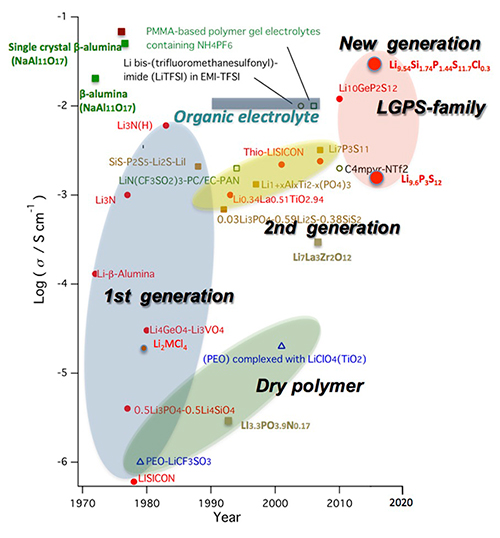Researchers at the Tokyo Institute of Technology, in collaboration with Toyota and two other research institutions, have designed and tested solid-state batteries using a novel type of solid electrolyte.
In “High-power all-solid-state batteries using sulfide superionic conductors,†published in Nature Energy, Yuki Kato and team members explain the advantages of superionic materials as solid electrolytes.
Previous designs for solid electrolytes have proven expensive, and some have exhibited problems with electrochemical stability. Superionic materials are solid crystal structures through which ions can hop easily, maintaining a flow of ions similar to that which occurs inside a liquid electrolyte.

“Compared with lithium-ion batteries with liquid electrolytes, all-solid-state batteries offer an attractive option owing to their potential in improving the safety and achieving both high power and high energy densities,†write Kato and colleagues. “Despite extensive research efforts, the development of all-solid-state batteries still falls short of expectation largely because of the lack of suitable candidate materials for the electrolyte required for practical applications.â€
Two cells based on the superionic materials performed well in trials, remaining stable at a range of temperatures between -30 and 100° C. They achieved high energy and power densities, and small internal resistance levels. The cells also exhibited ultrafast charging, retained their charge for lengthy periods, and appeared to have excellent cycling ability, retaining 75% of their capacity after over 500 cycles.
Source: ChargedEVs


